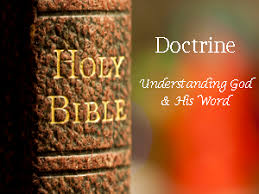The thirteenth in a series of 17 sermons
Series Theme
This series of sermon follow the articles of the Belgic Confession to present an bird’s eye view of the main doctrines of the Bible.
Readings reproduced on this page:
The Holy Bible: New International Version. 1996, 1984. Grand Rapids: Zondervan
Readings
Romans 5:12–21 (NIV84)
12Therefore, just as sin entered the world through one man, and death through sin, and in this way death came to all men, because all sinned—
13for before the law was given, sin was in the world. But sin is not taken into account when there is no law.
14Nevertheless, death reigned from the time of Adam to the time of Moses, even over those who did not sin by breaking a command, as did Adam, who was a pattern of the one to come.
15But the gift is not like the trespass. For if the many died by the trespass of the one man, how much more did God’s grace and the gift that came by the grace of the one man, Jesus Christ, overflow to the many!
16Again, the gift of God is not like the result of the one man’s sin: The judgment followed one sin and brought condemnation, but the gift followed many trespasses and brought justification.
17For if, by the trespass of the one man, death reigned through that one man, how much more will those who receive God’s abundant provision of grace and of the gift of righteousness reign in life through the one man, Jesus Christ.
18Consequently, just as the result of one trespass was condemnation for all men, so also the result of one act of righteousness was justification that brings life for all men.
19For just as through the disobedience of the one man the many were made sinners, so also through the obedience of the one man the many will be made righteous.
20The law was added so that the trespass might increase. But where sin increased, grace increased all the more,
21so that, just as sin reigned in death, so also grace might reign through righteousness to bring eternal life through Jesus Christ our Lord.
Text
Romans 7:14–25 (NIV84)
14We know that the law is spiritual; but I am unspiritual, sold as a slave to sin.
15I do not understand what I do. For what I want to do I do not do, but what I hate I do.
16And if I do what I do not want to do, I agree that the law is good.
17As it is, it is no longer I myself who do it, but it is sin living in me.
18I know that nothing good lives in me, that is, in my sinful nature. For I have the desire to do what is good, but I cannot carry it out.
19For what I do is not the good I want to do; no, the evil I do not want to do—this I keep on doing.
20Now if I do what I do not want to do, it is no longer I who do it, but it is sin living in me that does it.
21So I find this law at work: When I want to do good, evil is right there with me.
22For in my inner being I delight in God’s law;
23but I see another law at work in the members of my body, waging war against the law of my mind and making me a prisoner of the law of sin at work within my members.
24What a wretched man I am! Who will rescue me from this body of death?
25Thanks be to God—through Jesus Christ our Lord! So then, I myself in my mind am a slave to God’s law, but in the sinful nature a slave to the law of sin.
Belgic Confession
Article 15: The Doctrine of Original Sin
We believe that by the disobedience of Adam original sin has been spread through the whole human race.
It is a corruption of all nature__ an inherited depravity which even infects small infants in their mother’s womb, and the root which produces in man every sort of sin.
It is therefore so vile and enormous in God’s sight that it is enough to condemn the human race, and it is not abolished nor wholly uprooted even by baptism, seeing that sin constantly boils forth as though from a contaminated spring.
Nevertheless, it is not imputed to God’s children for their condemnation but is forgiven by His grace and mercy__ not to put them to sleep but so that the awareness of this corruption might often make believers groan as they long to be set free from “the body of this death.”30
Therefore we reject the error of the Pelagians who say that this sin is nothing else than a matter of imitation.
30. Romans 7:24



